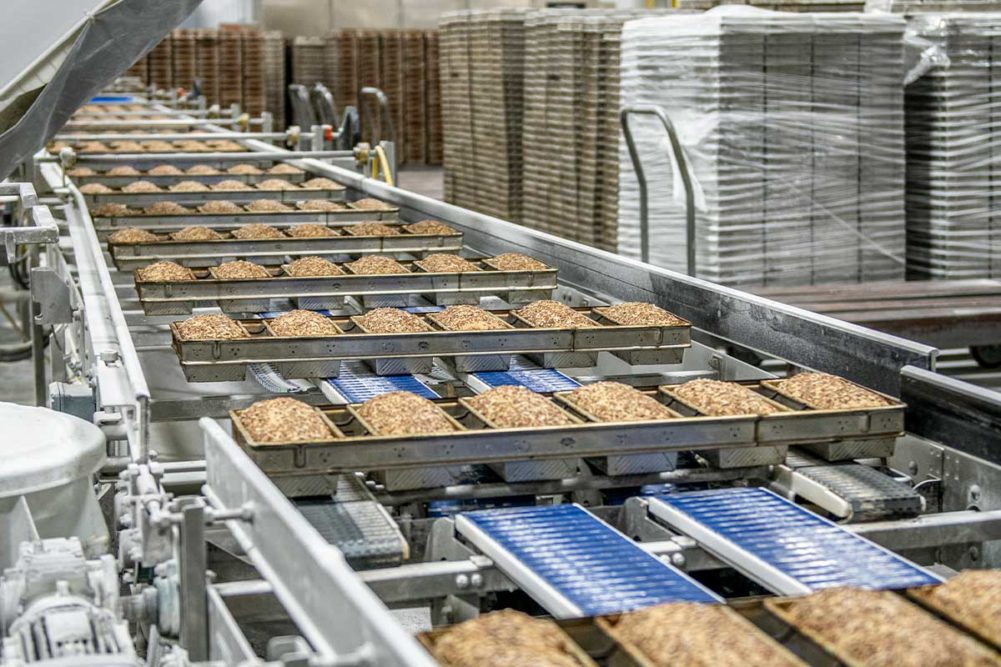When I visited Flowers Foods’ Lynchburg Organic Baking Co. earlier this summer I was struck by the opportunities presented when completely renovating vs. incrementally updating a baking plant. Margaret Ann Marsh, vice president of sustainability and environmental for the Thomasville, Ga.-based company, pointed out that technologies that simply didn’t make sense from a return on investment (ROI) perspective when updating a line, suddenly were economically practical when the bakery was being gutted and rebuilt.
When Flowers Foods was looking to add the single-lap indirect gas-fired oven in the Lynchburg bakery, for example, the company needed to add an oxidizer to be compliant with environmental regulations. But because this was a renovation, it made sense from an ROI standpoint to also install a glycol loop to capture the heat from the oxidizer and use it to create the steam for the proofer. Ms. Marsh suggested that the company has looked at the possibility of retrofitting other bakeries to accommodate the same technology, but the ROI just isn’t there unless it’s a part of a larger upgrade. In Lynchburg, however, the renovation provided the perfect opportunity to find technologies that were not only more efficient operationally but also more sustainable.
“It just made sense to add it as part of the project because it would be a big hurdle to do on its own,” she said.
As we approach this year’s International Baking Industry Exposition (IBIE), happening Sept. 17-21 in Las Vegas, I can’t help but note how much the baking industry, including both individuals and companies, has been through since IBIE 2019. There have been epic challenges in the form of the pandemic, supply chain, labor shortages, global unrest and more, all of which have fed off the others.
When I look back over the past two years, it feels like a ground-up renovation, like our lives have been gutted and we’ve had to find new ways to rebuild them. From an industry standpoint, the adoption of new technologies has been accelerated to overcome the new challenges we’re facing. Conversations around workforce sound completely different from just five years ago. Baking companies are willing to automate technologies that previously seemed out of reach, and they’re getting more creative around hiring. While the past two years may have been incredibly difficult, they’ve given us an opportunity to take on some of those industry upgrades — like robotics, remote maintenance or even new staffing strategies — that may not have happened in 2018 but certainly make sense now that everything is on the table.
At IBIE 2022, I can’t wait to see all the new technologies on the show floor that have been baking since 2019 to help bakers with their renovations. But I also look forward to hearing all the conversations and ideas exchanged in those moments when bakers and allied suppliers come together to find the solutions to the new challenges the industry faces.





